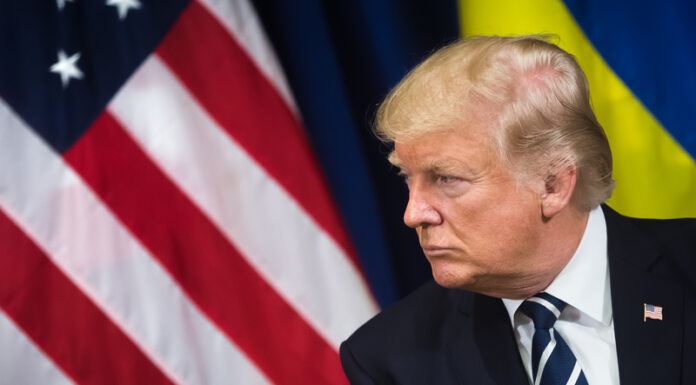President Donald Trump’s appearance during his Asia tour has sparked widespread concern about the 79-year-old leader’s health after footage captured him moving cautiously down the stairs of Air Force One in Japan on Monday, October 27, 2025. The president gripped the handrail tightly, his eyes fixed downward as he took measured, heel-to-toe steps while disembarking at Haneda Airport in Tokyo.
The arrival followed Trump’s flight from Malaysia as part of a broader diplomatic mission across Asia. During that flight, Trump revealed to reporters that he had undergone an MRI scan during what the White House described as a routine medical checkup at Walter Reed on October 10. He did not elaborate on the reason for the imaging test.
Video footage from Trump’s meeting with Japan’s Emperor Naruhito, 65, further fueled speculation about his physical condition. Upon arriving at the imperial residence, Trump walked carefully from his limousine to greet the emperor. When departing the meeting, observers noted he appeared to drag his right leg while favoring his left side.
Trump himself acknowledged his careful approach to stairs earlier in October during remarks to Marines, indicating he takes extra care when descending steps and avoids moving quickly. He described the need for slow, deliberate movements rather than bounding down stairs.
The White House has not released a comprehensive physician’s report from the October 10 medical visit beyond a brief summary. Press Secretary Karoline Leavitt had initially declined to specify which tests were performed while characterizing Trump’s health as excellent. The admission about the MRI directly contradicted that stance.
Medical issues have dogged Trump throughout recent months. A recurring bruise on his hand, which he frequently conceals with makeup, has made repeated public appearances. He also displays visibly swollen ankles. Doctors have diagnosed him with chronic venous insufficiency, a condition where damaged veins impair blood flow returning to the heart.
Medical experts discussing the president’s health have pointed to concerning signs beyond physical symptoms. Specialists interviewed last week on the Daily Beast podcast identified memory lapses and disorganized speech patterns as potential indicators of cognitive decline, though the White House has disputed this characterization.
White House Deputy Press Secretary Anna Kelly defended the president’s condition, stating: “President Trump is in incredible shape as a champion-level golfer and is demonstrating his unmatched stamina during his multi-leg trip to Asia.”
The images from Tokyo have reignited questions about presidential fitness and transparency that have persisted throughout Trump’s political career. His careful navigation of the Air Force One stairs stands in stark contrast to his public assertions of robust health and stamina, creating a disconnect between official statements and visible evidence.
At 79, Trump became the oldest individual to take on the U.S. presidency when he returned to the White House in January, making him the second oldest to ever hold the office.
It’s common for administrations to be cautious about releasing a president’s personal medical details, and there is no legal obligation for them to be open about such information.
Throughout history, presidents have concealed, misrepresented, or downplayed health issues, and experts point out an ongoing conflict between a president’s desire for privacy and the public’s right to be informed.
For example, President Cleveland secretly underwent surgery on a yacht to remove a cancerous tumor from his mouth, and his allies denied the story by branding it false and attacking the journalist.
In another case, President Wilson suffered a stroke in October 1919 that left him incapacitated for the remainder of his term, during which his wife effectively took on the role of acting president.
President Kennedy’s administration also hid the extent of his severe medical conditions, including Addison’s disease, an adrenal-gland disorder.
According to experts, those working within an administration — including White House doctors — have little motivation to be fully honest, as transparency could jeopardize their positions.
Questions have surfaced about whether President Biden’s aides and supporters concealed signs of mental decline, despite his physician issuing positive health reports. Following a poor debate showing against Trump, many Democrats urged Biden to step aside from the reelection race, fearing doubts over his health would contribute to a loss. Biden was later diagnosed with prostate cancer.
Trump’s health record has often been shrouded in secrecy, with critics frequently accusing him of masking his true condition with bravado.








